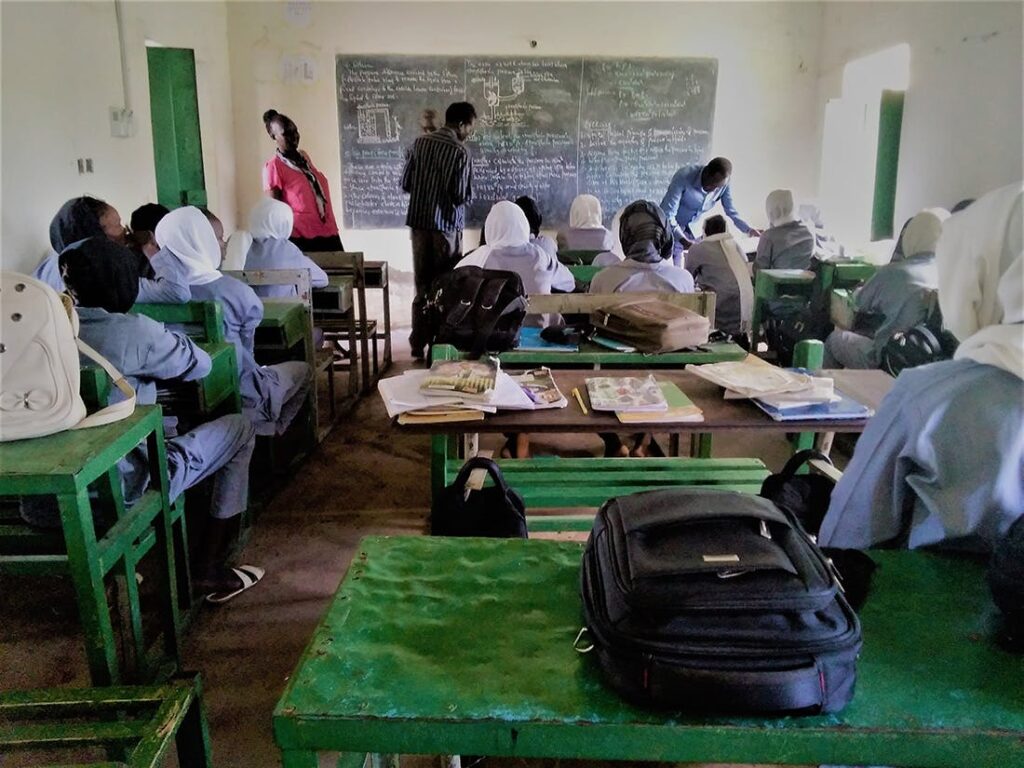As the business center of the Upper Nile Region of South Sudan, the town of Malakal has been one of those most affected by violent regional conflicts. Farming, once the main occupation in the area, is no longer practiced because it was unsafe to work in the fields. Many schools closed because there was no money to pay teachers’ salaries.
Eventually, hope and a return to school for girls arrived in the form of a grant from Food for the Hungry (FH). With the grant support, schools reopened, qualified teachers were hired, and students were provided with school supplies.
Crisis Closed Schools
“There was no way we could get money to run the school, so we had to close,” explained Abraham Chol, head teacher at Sobat Secondary in Malakal. “We do not charge the learners, so we have no source of income. Teachers here earn as low as $15 per month, and even then, they are not paid every month.”
“It’s a big challenge for us,” he added. “All of us working at the schools are here out of goodwill.”
Sobat Secondary is one of the six secondary schools in Malakal. Of its 132 students, most are classified as internally displaced persons (IDPs) or members of the “returnee community,” who live within United Nations’ Protection of Civilians (POC) camps. These students’ parents have no income, so they previously had no access to education.
Sobat is a zero-fee government school, which created many challenges in providing classroom necessities.
“The students who were unable to finish their studies were devastated,” Chol said. “I am brought to tears sometimes.”
Grant Enables Return to School
The school was able to reopen when a number of students became eligible for the Girls’ Education South Sudan (GESS) project grant through FH.
The project includes cash transfers for the benefit of girls and young women. It emphasizes the importance of girls’ education as well as education for children with disabilities. The funds are paid directly to schools, and make it possible to acquire books, chalk, chairs, stationery, and to pay the teachers their wages. The school was also able to pay for repairs and additional learning materials as well.
Now young women are returning to finish their education, including Nyamal, who is 17 years old. Nyamal lives in Malakal but wasn’t able to stay in school after her father died when she was very young. This tragedy left her mother to struggle in extreme poverty, and often the family went for days without a decent meal, she said.
Nyamal’s Story
“People consider food, shelter, clothing, and school as basic needs, but all of these things have been luxuries to me,” explained Nyamal. “My mother had to prioritize feeding us over all these other things.”
As a result, Nyamal had no hope to return to school, which she said made her self-conscious around her peers.
Education provides hope for young women who would otherwise have fewer opportunities. And lack of educational opportunities too often pushes girls and young women into early marriage.
“I actually was considering the marriage proposals that were coming my way, but with the help from GESS cash transfer, I now have the ability to ignore those and continue with my studies,” Nyamal said. She has resumed her basic education at Pieri Primary School, one of the schools in Malakal.

“I am so grateful for the help I received from FH and the GESS incentive,” Nyamal said. “I cannot pay them back with anything but gratitude. But hopefully when I have the power later, I can help another girl who is less fortunate.”
You May Also Enjoy These Posts:


